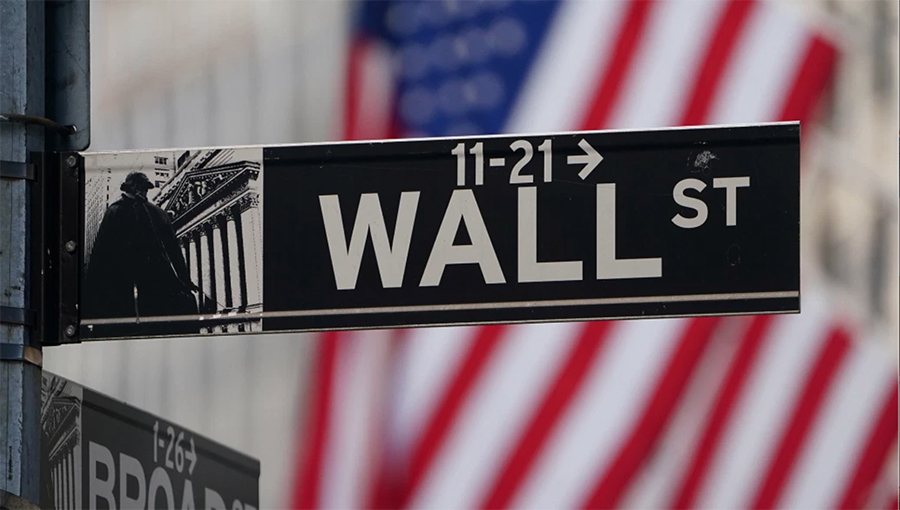By Eric Smith
<span style="color: #a1a1a1;">Mergers and acquisitions in the active-lifestyle marketplace have joined the growing list of business casualties in this unprecedented coronavirus outbreak. In a world of travel restrictions and social distancing, supply chain snags and store shutdowns, deals have slowed to a crawl.
Not only has the due diligence process been stymied due to the COVID-19 outbreak—after all, buyers need up-close and personal access to sellers’ operations—but valuations are plummeting for brands and retailers alike, meaning potential sellers have moved to the sidelines.
Even as Chinese factories crank back up and container ships are once again ready to set sail, U.S. businesses are coping with a host of supply chain issues related to production and distribution, sell-in and sell-through, consumer traffic and consumer confidence. So M&A activity, like everything and everyone, is mostly self-quarantined.
“Overall, M&A has stopped,” Nate Pund, a managing director in Houlihan Lokey’s consumer, food and retail group, told SGB Executive. “Uncertainty is the killer of everything. When you don’t have any sense of the world, it is very difficult to make an informed decision. If you have bad news, you can deal with that. If you have good news, you can deal with that. But when you have uncertain news, you don’t know what to do. We’ve received a bunch of calls from strategics and financials who are interested in buying businesses because they know some aren’t going to weather the storm very well, but they also are being conservative because they are not sure if this is a one-week, six-week, 10-week or one-year situation.”
The current pause on deals doesn’t mean sellers should throw up their hands and lament what could have been. Nor should it stop strategic or financial buyers from pursuing a target they’ve long eyed as an attractive portfolio addition.
Everyone, no matter what side of a transaction they hope or plan to be on, needs to understand the dynamics of this current disruption, including how to position their business during the delay and, perhaps most importantly, what not to do. This report looks at strategic and financial M&A from both the buy-side and sell-side perspective.
…
Current Landscape
The economy is in shambles, with the market collapsing and job losses mounting across all sectors, including active-lifestyle businesses. Though some industries are more insulated to this current mess, nearly all businesses will see some disruption.
The worst is yet to come, and a recession is looming, which is sure to stunt the number of deals that make their way into SGB Executive’s monthly M&A Roundups, our collection of active-lifestyle transactions.
“Short-term, absolutely there’s going to be a material slowdown in M&A,” Joe Pellegrini, managing director for Baird’s consumer investment banking division, told SGB Executive. “Some deals are moving forward, and I suspect that select deals will get done. But to get a deal done, you’ve got to have all the pieces in place. You got to have a buyer that has conviction around the target business and is not going to be frightened off by some short-term aberrations in the performance of the target.”
Investment bankers said transactions “near the finish line” will probably get announced, but those at the beginning or only partway through the process are likely to be tabled. While M&A volume will decline in the coming months, many are already eyeing the aftermath of the coronavirus crisis.
Pellegrini, who endured the stock market crash of 1987, the Gulf Wars of the early 1990s, the dot-com crash in the late 1990s, the events of September 11, 2001, and the Great Recession of 2008-2009, said there are sure to be some major deals to emerge from this current economic quagmire. Each of those events, for example, led to some monumental transactions.
He cited market-shifting moves like Phillips-Van Heusen Corp.’s $3 billion acquisition of Tommy Hilfiger after the Great Recession in 2010; VF’s $155.4 million acquisition of The North Face after the dot-com crash in 2000; and Gap’s $150 million acquisition of Athleta in 2008 as the Great Recession was beginning. Even Nike’s $315 million acquisition of Converse in 2003 came at an “opportune time when things looked horrible,” he said.
“Coming out of these cycles is when a lot of wealth gets created,” Pellegrini said. “If you look at the companies that catapulted themselves forward, it’s the companies that had the conviction to find the right to find that really great asset at the right time.”
Depressed markets, as difficult as they are for most businesses, indeed provide opportunities galore.
“Who’s saner? The person buying technology stock three weeks ago when the Dow was at 31,000 or the person who’s buying it now when it’s down?” Pellegrini said. “You’ve got to have conviction and confidence in the longer term.”
In other words, opportunistic buyers are now starting to prowl the market in hopes of scoring a great deal and desperate sellers are looking to enact an exit strategy. Even if acquisitions don’t get announced anytime soon, the seeds for a potential bumper crop of mergers and acquisitions are being planted.
That’s true in the world of private equity, where financial buyers will be aggressively looking to bolster their portfolios, Jay MacDonald, CEO and managing partner, Digital Capital Advisors, wrote in a recent article.
“Private equity will look for sector roll-ups and tuck-in acquisitions,” he wrote. “Private equity investors and buyers are always opportunistic, and given the current environment, they will be looking for areas that are undervalued to either add to their current portfolio companies or to find a sector that has one clear winner to grab as a platform company and roll up the rest.”
And it’s true for strategic buyers, said Pellegrini. “I think it’s going be a great time for the strongest strategics that have strengthened their operation, strengthened their balance sheet, to look at making acquisitions.”
…
Considerations For Buyers
Of course, strategic and financial buyers are wary about market volatility right now, and the private equity world has the added burden of steering their existing portfolios through this chaos. Because PE firms serve as the management consultants for their assets—some of whom might be particularly devastated by the coronavirus—they are focused inwardly at the moment.
“First and foremost, we are looking at the impact of the coronavirus to our portfolio companies,” Chris Brown, functional adviser for North Castle Partners and managing partner of Backline Partners, told SGB Executive. “How do we support the businesses and the management teams to make sure that they’re well protected, and we’re all on the same page in terms of how we’re handling it and what the potential scenarios are for a shorter-term financial impact and maybe a more prolonged setback?”
That doesn’t mean private equity will stay pat. It’s just that firms will have a refined set of criteria before moving forward on a platform or bolt-on acquisition.
“What sort of risk am I stepping into?” Brown said PE firms will be asking. “If I do something, it probably means I’ll be scrutinizing it more closely and thinking through downside scenarios in more depth than before. There will be opportunities to get involved with great companies at a lower price—that’s not the objective, but I think the market is headed that way.”
Strategic buyers are managing their own economic minefields with their core businesses, and there will be variation to the M&A approach among companies that are publicly traded or privately held, middle-market or large-cap. Each has a different outlook based on the need to create shareholder value, how much cash they have on hand, their appetite for acquisition and the market segment in which they operate.
Making a move during the crisis could be savvy, as many sellers are likely looking for an exit while valuations plunge, but the risk-reward equation is a tricky one for any buyer to justify when competitors might be in wait-and-see mode.
“No one wants to be in front of the pack,” Pellegrini said. “If you’re in front of the pack, there’s a risk. If things go well, then you’re a maverick and you’re given tons of accolades. But if things go wrong, people tend to say, ‘What were you thinking?’”
Not only that, but the “banks are all in disarray right now,” Pellegrini said, meaning the ability to line up financing could be difficult, and securing insurance in a post-coronavirus world has also mucked up the M&A process.
Still, it’s a good time for both strategic and financial buyers to start shopping. Pellegrini said he wouldn’t be surprised if companies like PVH, VF, Columbia Sportswear or LVMH pulled the trigger on deals. He suspects they will at least be on the hunt during this time of uncertainty for previously identified targets.
“I think there are some good assets out there that might struggle,” he said. “It wouldn’t surprise me to see some, not all, of those assets trade as we come out of this cycle. If you’re a really smart operator—and we’ve got some wicked smart people in these categories—you’re looking at this situation and licking your chops as you evaluate what those options might be.”
Houlihan Lokey’s Pund agreed that the current situation is setting up nicely for a surge of M&A activity in due time.
“Clearly, there are going to be opportunities,” he said. “If you’re an aggregator, a strategic that owns a portfolio of brands, and you have a history of acquiring things—Columbia, Wolverine, VF—the new world order presents a unique buying opportunity to acquire businesses that may need help or at a more affordable price than before the pandemic.”
There will also be real estate opportunities as businesses contract, he added: “If you’re a company that wants to expand, you’re going to have choices in terms of real estate post-pandemic as other businesses unfortunately close or shut-down.”
…
A Seller’s Checklist
Some company owners were on the verge of listing their businesses when the coronavirus hit, and like anyone who has a 401(k), they’ve watched in horror as valuations nosedived. But there are ways to manage a brand or a retailer during this pandemic. Working on your business instead of just in your business—a tall task at any point, especially during a crisis—is critical.
“You can make yourself stand out by proactively participating in and thinking through what the M&A process looks like for you in advance of a more formal process that may be handled by a boutique investment banker, adviser or intermediary,” Brown said.
The goal, he said, is to be mindful of how you run your business even amid supply chain woes and store shutdowns and diminishing sales.
Brown said a potential seller should “be able to demonstrate to a potential investor, ‘Here’s what I did when the you-know-what hit the fan. This is how I proactively reacted to it versus freaking out. Here are the measures that I took both from a financial perspective. I ran downside scenarios. I looked at my balance sheet. I talked to my lenders, I went to my vendors and tried to ask for better terms. I went to my landlords and told them what I need to weather the storm.’ People who are rational and logical and being proactive about their business are going to be the ones that stand out.”
Pund outlined a few steps for sellers who might have been eyeing a sale before the coronavirus ravaged the economy and sent prospective buyers into waiting mode. They are:
- Don’t panic. “So many people are just panicking like there’s no tomorrow,” Pund said. “I’m not saying that this isn’t scary, but please don’t panic.”
- Be prudent. “Draw down on your revolving line of credit,” Pund said. “Take in some cash—a lot of portfolio companies of big private equity firms have already done that. Do it while it’s easy to do so you have cash on hand, and you don’t have to go argue with your lenders.” Click here to read about VF Corp.’s decision to do this very thing.
- Be thoughtful about your spending. “It probably doesn’t make sense to run X, Y and Z marketing campaign, hire a bunch of people or update your ERP system,” he said. “At the same time, don’t start laying off people if you don’t have to, because that talent is so important and good people are hard to find. Companies are already laying off people, and that knee-jerk reaction is a big mistake. You lose loyalty. You lose your talent base.”
- Try to maintain an upbeat marketing presence and do the right thing. “Don’t say, ‘Oh, the world is fine, come buy our product,’” Pund said. “Instead, say, ‘Hey, we might be shutting down, but we are going to continue to take care of our employees and customers, so please contact us if you need assistance.’ Have a positive message that shows goodwill and supports your civic duty.”
These tips are easier said than done, of course, especially for a company that’s struggling to make payroll as sales dry up amid retail closures and dwindling consumer confidence. But any company that shows it can navigate a crisis such as the coronavirus is sure to rise to the top once the dust settles and business normalcy returns.
And normalcy will return. As will the traditionally acquisitive companies looking to direct capital toward the targets that survived.
“These simple few things will help a business get through the next several weeks when we get more clarity as to where the world goes,” Pund said. “If you’ve got a good brand and a good product and a good business, you are going to shine once the economy returns.”
Photo courtesy Reuters
















